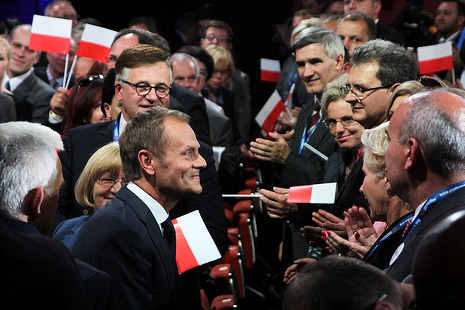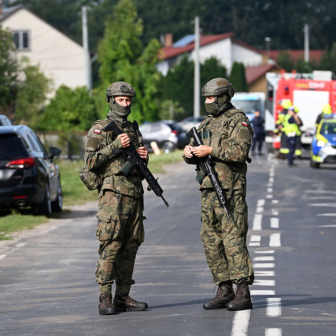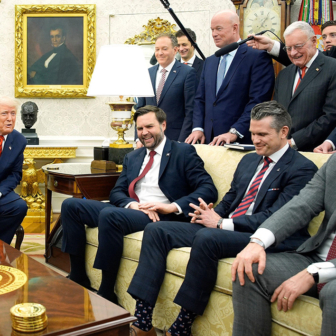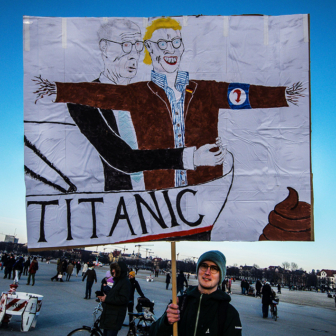POLAND’s parliamentary elections last Sunday saw Prime Minister Donald Tusk’s centrist Civic Platform party emerge with the largest number of seats. Elections in the former communist countries of Eastern Europe typically produce a decisive swing of the pendulum, but the governing party bucked the trend – indeed, Civic Platform has now won three successive national elections (two parliamentaries and one presidential). Tusk will be asked by President Komorowski to form a new government, and he is almost certain to form a coalition with the Polish Peasants’ Party once again.
The results are a further major setback for the main parties on the right and left of Polish politics. On the right, this was a sixth successive loss in elections of varying kinds for the nationalist Law and Justice Party of Jaroslaw Kaczynski. On the left, the post-communist Democratic Socialist Alliance (usually known by its Polish acronym SLD), once the dominant party, came in a miserable fifth.
The big sensation was a very strong showing by an aggressively secular party, the Palikot Movement, which had broken away from Civic Platform after the leaders of that party found the amusing but controversial antics of their eponymous leader, Janusz Palikot, an increasing liability. Provocatively anti-clerical, even anti-religious, and provocatively opposed to Kaczynski’s party – indeed, provocative in every way, and a successful producer of alcoholic beverages into the bargain – Palikot says he wants to turn Poland into a truly modern state.
By this he means not just liberal abortion laws, for instance, but also gay rights and some legalisation of prohibited drugs. For Poland this is all very strong stuff. But to judge by the electorate’s reaction – Palikot secured 10 per cent of the popular vote and seems assured of some forty seats out of 460 in the Sejm, the lower house of the parliament – it seems to be an idea whose time has come.
There is an important message here for the Church, for Law and Justice, and apparently also for the post-communist and more respectably secularist SLD, whom Palikot upstaged with his much more strident language.
Civic Platform’s victory will have been a big relief for the celebrated Polish public intellectual, Adam Michnik, who has largely devoted himself in recent years both as a writer and as editor of the leading Polish daily Gazeta Wyborcza to ensuring Law and Justice never returns to power. Shortly before last weekend’s elections, fearing that a poor turnout might disproportionately favour Law and Justice, which seemed to be making a late surge, Michnik wrote a typically passionate column entitled “Get out and vote! Take pity on Poland.”
His sentiments would have been shared in most European capitals and in Moscow. Law and Justice has a well-deserved reputation for xenophobic populism. Had it won, Poland’s relations with Germany and Russia in particular would have slumped sharply. With Poland currently holding the rotating six-monthly presidency of the European Union, many in Brussels and elsewhere feared that a Law and Justice win could disrupt the work of the presidency at a time when the euro crisis was already causing quite enough disruption. Tusk and his team are well respected in EU circles, and few European leaders feel any nostalgia for the days of Law and Justice government.
Measured, courteous and fluent in German, Tusk has an excellent relationship with German Chancellor Angela Merkel. Merkel’s efforts to woo the Law and Justice leaders – the late President Lech Kaczynski and his brother Jaroslaw, who was prime minister at the time – were abruptly rebuffed in 2006–07, and the party’s anti-German strand lingered. Just a few days before last weekend’s elections, Jaroslaw Kaczynski made the bizarre allegation that Merkel had been promoted into the chancellorship with the aid of the East German secret police, the Stasi, an organisation disbanded more than a decade before her accession. It was all the stranger because Merkel, with her direct experience of communism as a citizen of the former East Germany, appears to be about as well disposed towards Poland as any German leader is ever likely to be.
Kaczynski has been equally acerbic towards Moscow. Since the tragic air crash near Smolensk in April 2010 in which his brother Lech and many Law and Justice leaders and members of the Polish military elite perished, party figures have maintained a stream of dark hints that this was a massacre engineered by Russian agents – abetted in some unspecified way by the elected Polish government, no less. At one point Kaczynski described Poland as a “Russo-German condominium.” But the Tusk government’s policy towards Russia, while taking pains to minimise tensions, has been quite firm, and the warming of relations after the Smolensk disaster has partly dissipated.
Law and Justice refused to accept the victory of Civic Platform’s Bronislaw Komorowski in the mid-2010 presidential elections, despite the fact that numerous observers declared the poll to be free and fair. After the election, Jaroslaw Kaczynski declared that he would not shake his victorious opponent’s hand and repeatedly referred to him publicly as Mr Komorowski (Pan Komorowski – the Polish sounds much less respectful than the English) rather than President Komorowski. During the current campaign Kaczynski and his party refused to take part in any of the scheduled televised debates with the other parties, demanding instead that Civic Platform and its coalition partner should present at the Law and Justice headquarters for a televised grilling on their performance in government.
Back in 2005–07, when Law and Justice held both the presidency and the reins of government, it set about creating a “fourth Polish Republic,” making extensive personnel changes in the public service and regulatory agencies. It took over leadership of the Institute of National Memory, a body whose role includes exposing people in public life who have not acknowledged their collaboration with communist Poland’s security police. The Institute was felt by many to have become extremely politicised and overzealous: it produced, for example, a book denouncing the communist-era dissident leader Lech Walesa as a secret police collaborator.
Given Walesa’s public record, and the dubious quality of the communist secret police files adduced as evidence, this seemed less than plausible as well as highly divisive. But it was part of a broader Law and Justice narrative, which affirmed that despite all external appearances (fifteen plus years of democratic elections, frequent changes of government, the entry of Poland into NATO and the European Union), Poland continued to be ruled by a sinister crypto-communist uklad (establishment) in active cahoots with Moscow.
Having taken government in 2007, Civic Platform proceeded to reverse these policies, a process which has accelerated since Civic Platform’s Komorowski succeeded Lech Kaczynski in the presidency, which eliminated the threat of a presidential veto. Not perhaps without some justification, Law and Justice supporters now complain that they, in turn, have been unfairly discriminated against in various domains of public life.
Law and Justice has a strong orientation towards the Catholic Church, which has been reciprocated at various levels, from bishops to parish priests. Though Polish bishops differ in their political outlook, some are indeed Law and Justice supporters, even ardently so. A streak of narrow patriotism can sometimes emanate from the parish pulpit, particularly in rural areas, reflecting the traditional stereotype of “Pole-Catholic,” and not without a trace of anti-Semitism. To take an example that has attracted a degree of notoriety, the radio station Radio Maryja, which is run by the Redemptorist priest Father Tadeusz Rydzyk, presents a mix of popular devotional programs and explicitly pro–Law and Justice material that often verges on the xenophobic.
In recent years, the Polish national church has sometimes seemed to lack the wise and decisive leadership that it once enjoyed. While Poland has become a much more secular and pluralist society, the Polish Church, always conservative, seems to have become even more so. In addition to the strong current of overt support for Law and Justice, there is a strong emphasis on “lifestyle” issues like abortion and contraception (staples in communist times too), but also and increasingly on areas including the role of women in the church, state and society, the use of in vitro fertilisation, and gay rights.
The Church has been dismayed to find that its moral directives on such issues, once largely accepted, are increasingly being questioned. In response, it continues to claim the sacrosanct and privileged position in Polish society it once enjoyed. Encountering growing scepticism, it falls back on the reliable support of Law and Justice. But doing so may compound its problems. Certainly, the Church’s assumptions about its special role are increasingly challenged if not resented. Palikot’s success last Sunday and Law and Justice’s latest defeat may lead to some sort of rethink in both the church hierarchy and in the party’s highly centralised leadership. But in recent times both have seemed unresponsive to signals from public opinion.
DESPITE Poland’s huge economic and political successes under varying governments, Polish politics continues to be bitterly contested. The degree of venom in public life seems to bear little relation to the new realities apparent to the rest of Europe, where Poland is widely seen as having come of age as a successful market democracy which has joined the inner circle of the most influential EU member states. What makes it all the stranger is the fact that the leaders of both main parties were comrades in arms in the struggle for democracy and national independence.
While Tusk has achieved pretty good results domestically, certain difficult reforms have tended to be postponed on the grounds that the president might veto them or that an election was coming up. Further reforms are needed in such areas as privatisation, pensions and public finances. Civic Platform now holds the presidency and a secure parliamentary majority, so it has run out of excuses for any further postponements.
Tusk and foreign minister Radoslaw Sikorski’s external policies have been largely successful. Though controversies arise from time to time, Poland’s standing is high and its relations with most of its neighbours much improved. But one key area where it may be hitting a brick wall is in the so-called Eastern Partnership. Formally an EU initiative, though largely promoted by Poland and Sweden, the partnership is aimed at drawing six former republics of the Soviet Union – Ukraine, Belarus, Moldova, Armenia, Azerbaijan and Georgia – into closer relations with Europe. Poland would like to see at least some of these countries, particularly its large neighbour Ukraine, become fully integrated partners or even members of the European Union.
Despite Poland’s assiduous efforts, the future of the Eastern Partnership still looks uncertain. The sums of money being spent by Brussels on the project are relatively modest, EU members are preoccupied with the euro crisis, “enlargement fatigue” is growing within the Union, and the behaviour of some of the most important of the putative partners has been increasingly unedifying.
Belarus’s economy is in freefall, and its president of seventeen years, Alexander Lukashenko, has dealt brutally with the growing mood of opposition in the country as his approval ratings have sunk to an unprecedented low of 20 per cent. Periodically he makes gestures towards the West by releasing some political prisoners, but then takes offence at something else and resumes denouncing the West’s “hypocrisy.” He is still hoping for an IMF loan to bail him out and save him from total dependency on Russia, but the logic of his regime and his economic model seems to be driving him further into Moscow’s arms.
The Ukraine of President Viktor Yanukovych is similar in many ways. Eager to escape Moscow’s tight control despite his pro-Moscow instincts, Yanukovych has been pushing hard for an association agreement with the European Union that would give him a free trade deal and progress towards visa-free people movements. At the same time, though, he has been pursuing opposition leaders through the courts in what look very like political prosecutions. This week the heroine of the Orange Revolution of 2004–05, Yulia Tymoshenko, who nearly defeated him in last year’s presidential elections, has been sentenced to seven years’ imprisonment. Polish leaders have repeatedly warned Kiev that this might cost it an agreement with Brussels, but it remains unclear whether Yanukovych will somehow facilitate her release.
Poland managed to secure a summit of Eastern Partnership and EU leaders in Warsaw on 29–30 September, but it was not an obvious success, and there is a danger that when Poland vacates the presidency, achieving progress on that front will become harder. Tusk has certainly fought the good fight, but success remains elusive. He will continue to try to build West European influence in the countries to Poland’s east, as far as possible without unnecessarily alienating Russia in the process. But that would be difficult at the best of times. Unfortunately, with EU governments in the grip of crisis and a confident and strategic Vladimir Putin back at the helm (which he never really left), these are not the best of times. •




